Presenters: Session 1 featured: Angela Benson, Leshell Hatley, Deepak Subramony and Joe Terantino
Session 2: Bodi Anderson, Amy Bradshaw, Akesha Horton and Michael Thomas
Session 3: Leshell Hatley, Angela Benson
Time and date: Two part seminar with two one hour webinars. Please see further down for link to the recording of the first webinar Tuesday, 17 October. Thank you for joining us Tuesday, 24 October at the second session. Please note third session on 31 October at 1 pm (SAST) with Leshell Hatley and Angela Benson.
Time converter at worldtimebuddy.com
Interested in exploring the intersection between culture, learning and technology? This 2-part seminar will be presented by members of the AECT Culture, Learning and Technology (CLT) Division. The first seminar will provide an overview of different types of CLT research, introduce frameworks for researching CLT and the importance of this kind of research. The second seminar will discuss international examples of CLT research that represent the types discussed in seminar 1 and illustrate how particular frameworks were applied and/or how the practice was situated. The diversity of students in African Higher Education institutions and elsewhere means that researchers are well placed to start exploring this intersection in their own contexts. Sign up for this seminar series and join a growing global conversation!
The presenters have made 4 e-book versions of the edited volume, ‘Culture, Learning and Technology: Research and Practice’ available. For each session we will find two winners. To enter please: 1. Sign up for the CLT seminar series below (If you haven’t done so) 2. Tweet your answer to the question ‘Why should researchers investigate the intersection between culture, learning and technology?‘ followed by the mentions: @aectclt and @emergeAfrica
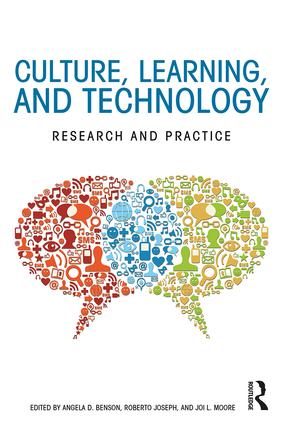
Representative Chapters
Select HERE for full book details
- Revisiting Instructional Technologists’ Inattention to Issues of Cultural Diversity among Stakeholders
- Hip-Hop Music as a Pedagogical Tool: Teaching with Hip-hop in Global Contexts
- How cultural factors influence the use of social constructivist-based pedagogical models of distance learning: Examining Japanese online collaborative behaviors
- Culture & Computational Thinking: A Pilot Study of Operationalizing Culturally Responsive Teaching (CRT) in Computer Science Education
Resources for interest:
AECT-CLT Virtual Community
This seminar series has ended – please view this playlist for sessions in the series
Speaker bios & profile pictures:
Session 1: Angela Benson, Leshell Hatley, Deepak Subramony and Joe Terantino
Angela D. Benson (Ph.D., Instructional Technology, University of Georgia) is an Associate Professor at The University of Alabama in the US. Her current research investigates the role of culture in technology-mediated learning spaces. She has published more than 40 academic publications and presented more than 50 academic presentations, primarily addressing issues of power and politics in online learning environments. She regularly teaches courses in instructional technology foundations, instructional design, online course development, software development and technology management. She has also facilitated more than 50 educational technology workshops for higher education faculty and staff, including a recent session with 30 Chinese scholars in Shenyang, China. Dr. Benson is one of the editors of the book, Culture, Learning and Technology: Research and Practice, and President of the Culture, Learning and Technology Division of AECT.
Joe Terantino (Ph.D. in Second Language Acquisition & Instructional Technology from the University of South Florida) is Director of the Language Resource Center at Brown University. His expertise lies in teaching methodology, second language acquisition, distance learning, and computer-assisted language learning. As a passionate user and researcher of instructional technology, he is particularly interested in the intersection of technology and the development of intercultural competence.
Dr. Deepak Prem Subramony is Associate Professor and Coordinator of Educational Technology (ET) Graduate Programs at Kansas State University’s College of Education. His areas of scholarly interest include social/cultural issues in ET, equitable access to ET, the impact of ET on minority and non-Western learners, as well as culturally cognizant ET practice and change management. He has been closely associated with the CLT Division’s predecessor group Minorities in Media (MIM) since more than a decade ago, and served as MIM’s President from 2007 to 2009. In 2014 he received the CLT Division’s McJulien Scholar Award. Currently he is serving as the CLT Division’s President-Elect Designate.
Leshell Hatley Ph.D. is an Assistant Professor of Computer Science at Coppin State University in Baltimore, MD and is the Founder and Executive Director of Uplift, Inc., a nonprofit STEM education organization. Uplift offered the first mobile application development course to middle and high school students in the US and is one of the first organizations to offer after school courses in Lego Mindstorms Robotics in Washington, DC. She and the students in her research lab at Coppin State, the Lab for Artificial Intelligence and its Applications (LAIA), won the 2016 USA White House HBCU (Historically Black Colleges and Universities) Maker & Innovation Challenge and she recently led the first Coppin State Team to compete in the NASA Swarmathon. She is a passionate computer engineer, educator, and researcher who continuously combines these three attributes to create innovative approaches to teaching STEM concepts to students between that ages of 3 and 73. With over 16 years of teaching experience, Leshell leads teams of enthusiastic students, dedicated volunteer instructors, and teams of engineering to achieve award winning success, national news coverage, and innovative technology product designs.
Session 2: Bodi Anderson, Amy Bradshaw, Akesha Horton and Michael Thomas
Bodi Anderson currently is an assistant professor of instructional technology at Indian River State College. He has also taught at Northern Arizona University, as well as Kwansei Gakuin and Meiji University in Japan. He received his doctorate in Curriculum and Instruction with an emphasis on Educational Technology from Northern Arizona University in 2012. He has also has a M.A. in Applied Linguistics with a focus on Computer Assisted Language Learning from NAU and a B.A. in East Asian students from the University of Arizona. He continues to present at major conferences and publish in the field of educational technology. His primary research interests include cultural issues in online with a focus on East Asia and distance learning and game based learning and immersive virtual environments.
Amy C. Bradshaw , Ph.D. is an Associate Professor of Instructional Psychology & Technology at the University of Oklahoma. Her scholarly interests include social and cultural implications of instructional technologies; visuals for learning and instruction; scaffolding higher order and critical thinking; and educational philosophy. Her teaching practice reflects commitment to integrating equity and social justice with instructional technology. She has served as Editor of the Journal of Visual Literacy, Guest Editor for TechTrends 47(6) (special issue), Guest Section Editor for two issues of the ETR&D International Review, President of the International Visual Literacy Association (IVLA), and President of the International Division (ID) of the Association for Educational Communications & Technology (AECT). She currently serves on the Executive Committee of the Southwest Center for Human Relations Studies (parent organization for the National Conference on Race and Ethnicity in American Higher Education) and as the Vice President of Research & Publications for AECT’s Culture, Learning, & Technology Division.
Akesha Horton, Ph.D. is a Learning Design, Development and Innovation Coordinator for the United States Air Force. She earned her doctorate degree in Curriculum, Teaching, and Educational Policy from Michigan State University’s College of Education. Dr. Horton is an alumni of Fulbright-mtvU Scholar program. In this role, she worked with Australian based hip-hop artists to develop and implement educational programs that served underrepresented youth. While in Australia, she helped launch the first completely online program in Indigenous Education at Macquarie University.
Dr. Horton has been an active agent in a plethora of teaching and scholarship experiences in the educational arena, including in-school and out-of-school urban settings, higher education, instructional design, e-learning, and curriculum development for K-12, university, non-profit and small business settings. She has served on the board of national educational organizations in the United States, as well as a volunteer in the nonprofit sector. These collective experiences led to her research interests which explores the intersections between learning, technology, and culture for youth and young adults. She currently serves as a mentor to educators who have completed the Google Certified Innovator program and is the Vice President of Communications for AECT’s Culture, Learning, & Technology Division.
Michael K. Thomas, Ph.D. is an Assistant Professor of Educational Psychology at the University of Illinois at Chicago where he serves as faculty and qualitative methodologist. Thomas’ primary research interest centers on the cultural dimensions of technology implementation in learning contexts and what this means for the design of technology-rich innovations for teaching learning. Three key questions with respect to this are (a) What are the central concerns of teachers, trainers, and other stakeholders regarding the implementation of technology in learning contexts? (b) What do they do to continually resolve these concerns? and (c) In what ways does culture play a role in the design and implementation of technology-rich innovations? He is particularly interested in video games and gamification in learning environments and was a primary contributor to the Quest Atlantis project funded by the National Science Foundation. He is currently the P.I. of the CySec Project for designing games for middle school students learning cybersecurity. This project is also supported by the National Science Foundation.

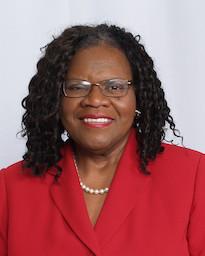


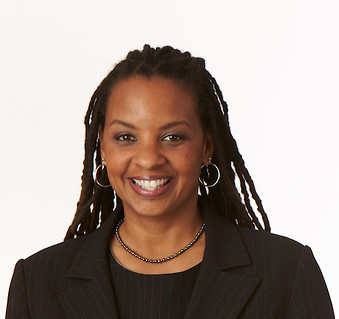

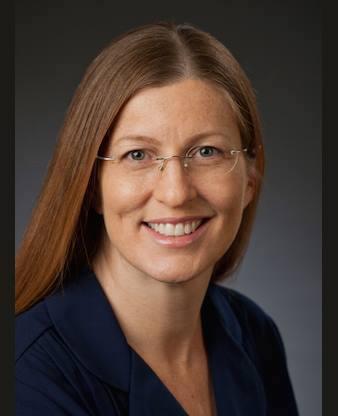
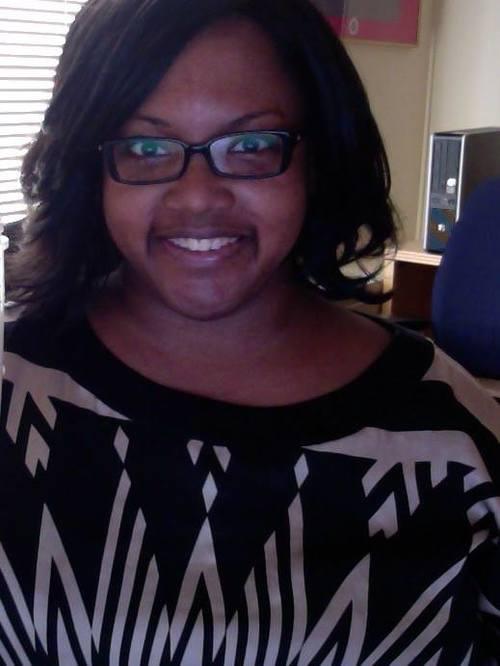
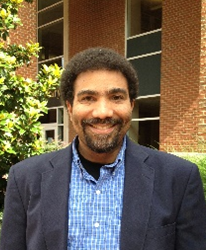
Thank you for opportunity 🙂
Appreciate the opportunity to learn